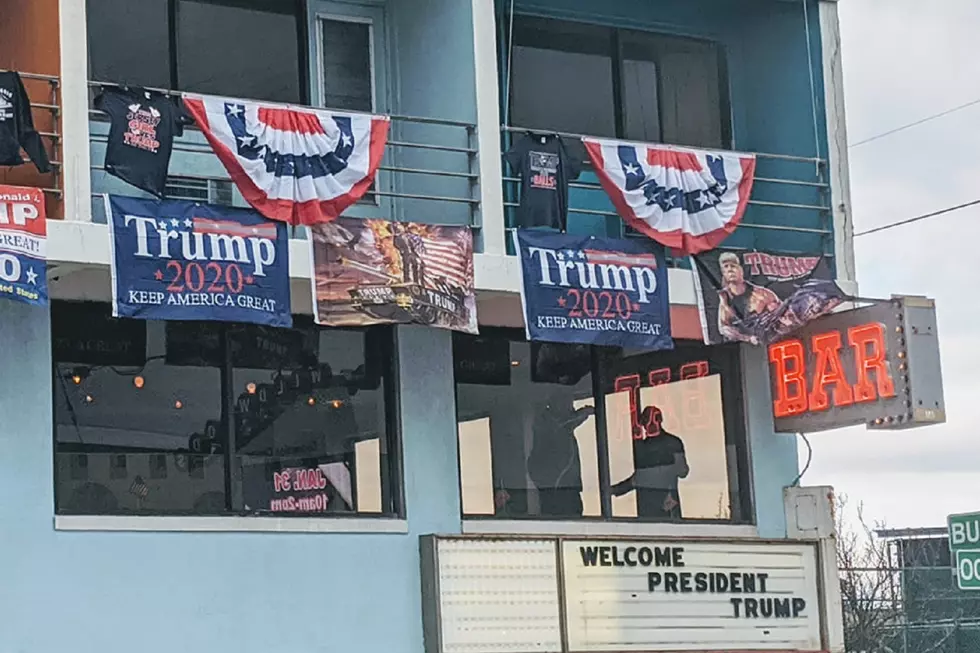
When will voters care about the November election in this ‘very weird year?’
A global pandemic. A nationwide debate about police misconduct. Murder hornets. "Tiger King."
Not even halfway done, the events of the year 2020 have changed our world, maybe forever.
In November, New Jersey and America will decide who will be in the White House, leading us for the next four years. In New Jersey, the legalization of recreational marijuana remains on the ballot.
Yet this election cycle has not dominated our lives like it seemed to in 2016.
Ben Dworkin, director of the Rowan Institute for Public Policy and Citizenship at Rowan University, said you may find some people out there who are actively engaged in the buildup to the general election. Most, though, have formed opinions about both Donald Trump and Joe Biden. This will largely be a referendum on Trump's first term, and New Jerseyans likely have already decided whether they are supporting the president, he said.
That stands in contrast to 2016's open primaries in both major parties, when although eventual nominees Trump and Hillary Clinton were well-known, it took a comparatively long time for them to emerge as unchallenged standard-bearers.
Both Dworkin and Peter Woolley, director of the School of Public and Global Affairs at Fairleigh Dickinson University, agree that the attention being paid to the November election will begin to intensify around the end of this summer.
"The sustained public interest in the election will start around Labor Day and take us through to the election, and that's not untypical," Woolley said, though he qualified that "this is a very weird year."
Dworkin said that usually, the summer of a presidential election year is filled with backyard barbecues and Olympic fever, but Garden State residents have much more serious issues on their minds right now.
"People will remain focused in the summer on their own lives, trying to get their businesses going again, trying to keep figuring out how to get their kids into school," Dworkin said.
In the absence of other quadrennial rites of summer, Woolley said that interest will bubble up around convention time, or whenever prior to the Democratic convention Biden makes his vice-presidential pick. The GOP convention will be one to watch, too, as in an unprecedented move due to the COVID-19 pandemic, it will be held in two cities: Charlotte, North Carolina, and Jacksonville, Florida.
Those conventions will have a little bit more "space," as Woolley put it, in our collective consciousness, but when they are over, he expects Americans to resume their normal lives for the rest of the summer.
Dworkin pointed out that New Jersey has not even had its primary yet (rescheduled to July 7), and that if Trump and Biden are at any point able to move past social distancing and engage more with voters, we will see more of the he-said, he-said that usually inflames opinions on both sides.
"Think of this election in 2020 like a wave in the distance that's heading toward the shore," Dworkin said. "It will come in strong and will crash on the beach, but it takes time."
According to Woolley, what has happened across New Jersey, the country, and the world so far this year is turning our discourse political by default, as we debate who to trust about COVID-19, how long the economic recession will last, and most recently, police violence, a dialogue he said "we always say we need to have, but of course, we often don't."
"What's going on now are big conversations about politics," Woolley said. "These are not conversations about the election per se, but the conversations we're having are really proxy conversations for the election."
While President Trump has a way of "taking the air out of the room when it comes to media attention," as Woolley puts it, Biden has not yet been a big part of these discussions.
Dworkin worries about the impact COVID-19 will have on what was supposed to be a high-turnout election, particularly if people are wary of voting by mail.
But he said one thing New Jerseyans are not yet doing is turning their eyes to 2021. They may be forming opinions about Gov. Phil Murphy based on his response to the coronavirus crisis, but Dworkin said it is too early for anyone to be thinking seriously about a Murphy reelection bid next year.

More From WOBM News:
Things I Am Looking Forward To Doing Post-Quarantine
More From Beach Radio










